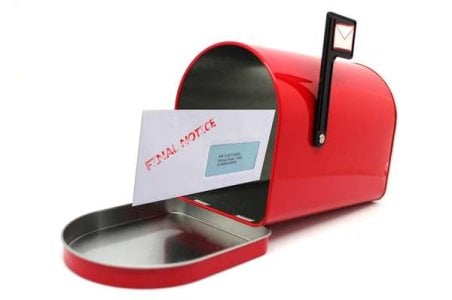Even with Robodebt gone, why are Centrelink debt notices still causing stress and confusion?
Despite the abolishment of the notorious Robodebt scheme, Centrelink's debt recovery practices continue to stir distress among recipients, including pensioners, carers, and parents receiving childcare assistance.
Advocates for welfare recipients report that Centrelink's current debt recovery approach is lacking in several aspects.
Recipients often receive ‘semi-threatening’ debt notices that provide insufficient information about the calculation of the debt amount.

They claim that Centrelink's debt recovery process is still causing additional stress, reminiscent of the Robodebt scheme.
The income-averaging method used to determine debts in the scheme was heavily criticised during the recent royal commission, which referred to it as an ‘extraordinary saga’ marked by ‘venality, incompetence, and cowardice’.
Although the Robodebt program was terminated in 2019, advocates for welfare recipients strongly emphasise the need for improvements to Centrelink's current processes.
The Welfare Rights Centre's Chief Executive Officer, Katherine Boyle, announced on ABC Radio Sydney that while there had been improvements, the current approach still feels eerily familiar.
'Robodebt is dead, but people feel like they have a Robodebt. That feeling of being chased, persecuted, and confused—that hasn't actually changed.' said Ms Boyle.
Here's an example of how these issues can feel like a frustrating puzzle.
Meredith Davies' husband is a recipient of a disability support pension.
About a year ago, the couple received a letter stating he had an overpayment of over $600, which would be deducted from future payments.
However, even after twelve months and several phone calls, including seeking help from their local federal MP's office, they still haven't received any further information.
Ms Davies said, ‘If they can't give you a good reason for the overpayment, they shouldn't be asking for it.’
Likewise, an 88-year-old carer of a Parkinson's patient was nearly stripped of his carer allowance because of a failure to communicate clearly with Centrelink about his wife's hospitalisation dates.

These are just two of many frustrating stories we’ve heard of good people mismanaged by the system they rely on most.
And, with 1.6 million debts raised in 2021-2022 by Services Australia, there are be countless stories like these.
In response to these struggles, Centrelink promises changes to its debt letters, including providing more detailed insights regarding the origin of these debts.
A spokesperson stated, ‘We're making further changes to include more detailed information on how a debt occurred…We're sorry to hear people are having trouble reaching us.’
But will the changes go far enough for those that depend on these services?
Ms Boyle certainly has her doubts. She states, 'The problems are so systemic, so deep, so long term that it's going to take a while to fix Centrelink, so it's actually serving the people as it should.'

So, even though Robodebt may be gone, it’s clear there’s still much work to do.
We would love to hear your opinions on the story shared above. What improvements do you think are necessary to alleviate stress and confusion for the recipients? Feel free to share your thoughts!
Advocates for welfare recipients report that Centrelink's current debt recovery approach is lacking in several aspects.
Recipients often receive ‘semi-threatening’ debt notices that provide insufficient information about the calculation of the debt amount.

People who speak up for welfare recipients say that Centrelink's way of trying to collect debts is causing more stress because they send threatening letters with not enough information, just like they did during the Robodebt program. Image by Tumisu from pixabay
They claim that Centrelink's debt recovery process is still causing additional stress, reminiscent of the Robodebt scheme.
The income-averaging method used to determine debts in the scheme was heavily criticised during the recent royal commission, which referred to it as an ‘extraordinary saga’ marked by ‘venality, incompetence, and cowardice’.
Although the Robodebt program was terminated in 2019, advocates for welfare recipients strongly emphasise the need for improvements to Centrelink's current processes.
The Welfare Rights Centre's Chief Executive Officer, Katherine Boyle, announced on ABC Radio Sydney that while there had been improvements, the current approach still feels eerily familiar.
'Robodebt is dead, but people feel like they have a Robodebt. That feeling of being chased, persecuted, and confused—that hasn't actually changed.' said Ms Boyle.
Here's an example of how these issues can feel like a frustrating puzzle.
Meredith Davies' husband is a recipient of a disability support pension.
About a year ago, the couple received a letter stating he had an overpayment of over $600, which would be deducted from future payments.
However, even after twelve months and several phone calls, including seeking help from their local federal MP's office, they still haven't received any further information.
Ms Davies said, ‘If they can't give you a good reason for the overpayment, they shouldn't be asking for it.’
Likewise, an 88-year-old carer of a Parkinson's patient was nearly stripped of his carer allowance because of a failure to communicate clearly with Centrelink about his wife's hospitalisation dates.

It is essential that Centrelink not only makes changes to its debt letters but also takes concrete steps to rebuild trust and ensure that vulnerable citizens are served with the dignity and respect they deserve. Image from shutterstock
These are just two of many frustrating stories we’ve heard of good people mismanaged by the system they rely on most.
And, with 1.6 million debts raised in 2021-2022 by Services Australia, there are be countless stories like these.
In response to these struggles, Centrelink promises changes to its debt letters, including providing more detailed insights regarding the origin of these debts.
A spokesperson stated, ‘We're making further changes to include more detailed information on how a debt occurred…We're sorry to hear people are having trouble reaching us.’
But will the changes go far enough for those that depend on these services?
Ms Boyle certainly has her doubts. She states, 'The problems are so systemic, so deep, so long term that it's going to take a while to fix Centrelink, so it's actually serving the people as it should.'
Key Takeaways
- Welfare recipients are reportedly still experiencing stress and confusion due to Centrelink's debt recovery processes, even after the controversial 'Robodebt' scheme was dumped.
- There have been complaints that debt notices do not provide enough information about how the owed sums were calculated and use 'semi-threatening' language.
- Some improvements have been made, according to Welfare Rights Centre CEO Katherine Boyle, but there are continuing issues with the way Centrelink pursues debts.
- Services Australia is reportedly making changes to improve debt letters, aiming to provide more detailed information on how a debt occurred.
So, even though Robodebt may be gone, it’s clear there’s still much work to do.
We would love to hear your opinions on the story shared above. What improvements do you think are necessary to alleviate stress and confusion for the recipients? Feel free to share your thoughts!







